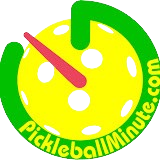The Surprising Mental and Physical Health Benefits of Pickleball: Why This Sport is Taking Over America
Pickleball: The Fastest-Growing Sport Boosting Physical and Mental Health
By now, you’ve likely encountered headlines heralding pickleball as the “fastest-growing sport in the country.” With nearly 50 million Americans—19% of the population—grabbing paddles last year, the sport is surging in popularity. Courts, clubs, and leagues are sprouting up nationwide, creating a vibrant community for players of all ages and skill levels.
But what’s driving this pickleball phenomenon? Enthusiasts cite its fun, competitive nature and the opportunity to forge friendships. However, the most compelling reason may be its profound benefits for mental health.
Health Benefits Backed by Research
A recent report from Apple examined the health impacts of pickleball, utilizing data from Apple Watch users. The findings revealed that playing pickleball not only serves as an excellent workout—boosting cardiovascular and metabolic health—but is also linked to significantly lower rates of self-reported depression. Frequent players reported depressive symptoms that were 60% lower than those of the general study group.
Dr. Calum MacRae, a cardiologist and principal investigator of the study, suggests that the sport’s benefits may stem from various factors, including hormonal changes and improved neuromuscular coordination. “Racket sports help people work out their body and their mind, making them some of the healthiest physical activities available,” he explains.
A Mood Booster for All Ages
Pickleball’s appeal extends beyond physical fitness. Engaging in aerobic activities like pickleball releases endorphins—hormones that alleviate pain, reduce stress, and enhance overall well-being. The sport aligns perfectly with the CDC’s recommended 150 minutes of moderate-intensity exercise per week, with average games lasting around 90 minutes.
Moreover, pickleball fosters social connections. Whether through leagues or casual games, players often develop a sense of community and belonging. “Humans thrive when we experience connection, and pickleball allows us to bond through an activity that also physically makes us feel good,” says Emily Hemendinger, an assistant professor in the Department of Psychiatry at the University of Colorado Anschutz Medical Campus.
Keeping Your Mind Sharp
Playing outdoors also exposes participants to natural daylight, which can enhance sleep quality and overall life satisfaction. The game requires quick thinking and strategic planning, promoting cognitive function and potentially staving off cognitive decline. Hemendinger notes that sports like pickleball can improve memory and processing speed, making it a dual workout for both body and mind.
Getting Started with Pickleball
For those eager to join the pickleball craze, the community is welcoming to newcomers. Watching instructional videos online can provide a solid foundation of the rules, and taking lessons can ease any apprehensions about stepping onto the court.
Before diving in, warming up is essential to prepare your body and reduce the risk of injury. Dynamic stretching or light exercises can help get your blood flowing. If you have existing injuries, consulting a healthcare provider is advisable to ensure that playing is safe for you.
Moderation is key; even short bursts of activity can yield significant mental health benefits. “Whether it’s for 15 minutes or 90 minutes, getting out and moving your body mindfully is a reliable stress reliever,” Hemendinger emphasizes.
Conclusion
As pickleball continues to capture the hearts of millions, its blend of accessibility, affordability, and health benefits makes it a sport for everyone. Whether you’re looking to improve your fitness, boost your mood, or connect with others, pickleball offers a fulfilling way to engage both body and mind. So grab a paddle and join the fun—your mental health may thank you!

